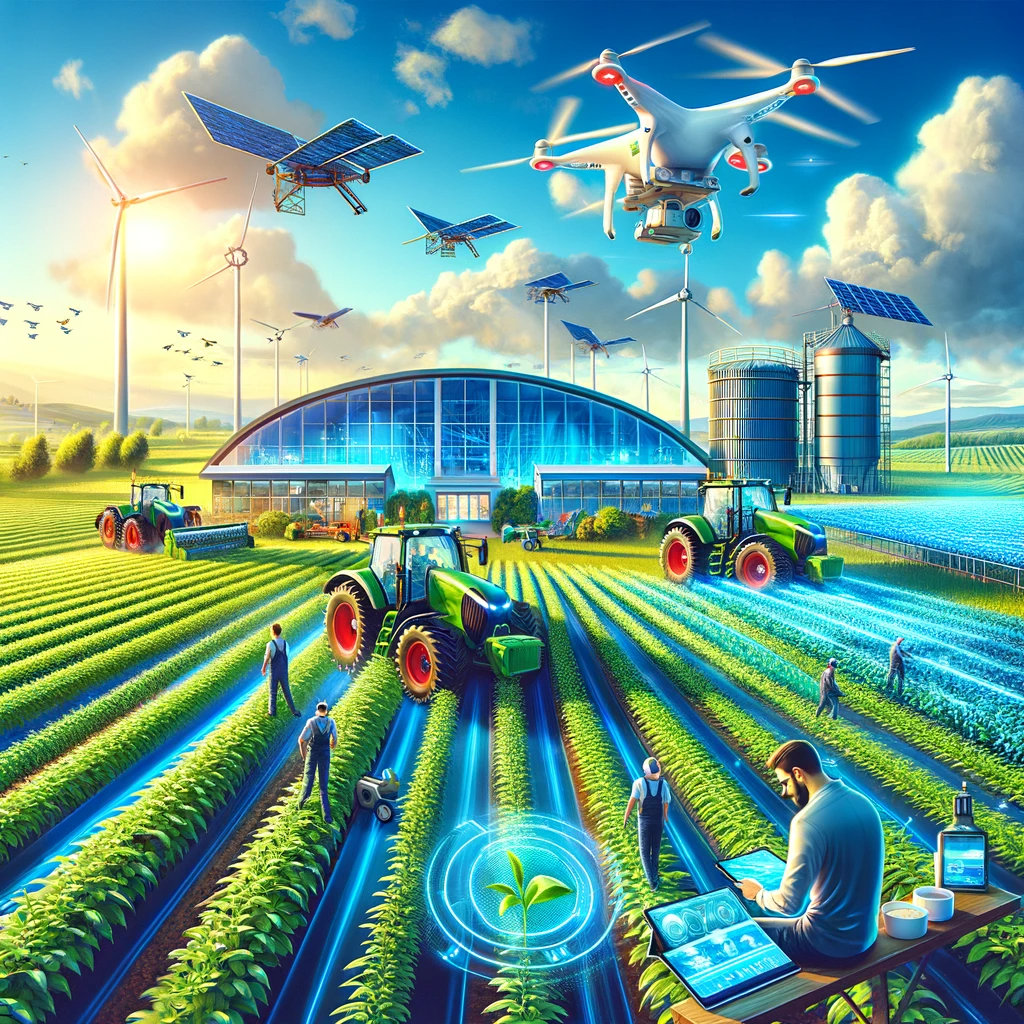Introduction:
Agriculture, the backbone of human civilization, has undergone a remarkable transformation over the years. From traditional farming practices to the adoption of cutting-edge technologies, the world of agriculture has evolved to meet the growing demands of a rapidly expanding global population. In this article, we will delve into the diverse facets of modern agriculture, exploring its challenges, innovations, and the crucial role it plays in sustaining life on Earth.
The Evolution of Agriculture:
The history of agriculture dates back thousands of years, with the transition from hunter-gatherer societies to settled farming communities marking a pivotal moment in human development. Initially, agriculture relied on manual labor and basic tools, with farmers cultivating small plots of land to meet local needs. As populations grew, so did the need for increased food production, leading to the development of more sophisticated farming techniques.
The Green Revolution, which began in the mid-20th century, introduced high-yielding varieties of crops, chemical fertilizers, and pesticides. This era of agricultural innovation significantly boosted global food production, helping to alleviate hunger and poverty in many parts of the world. However, it also raised concerns about environmental sustainability and the long-term impact of intensive farming practices.
Challenges in Modern Agriculture:
Despite the advancements in agriculture, the sector faces a myriad of challenges that require innovative solutions. Climate change, water scarcity, soil degradation, and a growing population are just a few of the factors putting pressure on the global food supply. Farmers worldwide are grappling with the need to adapt to changing climate patterns, implement sustainable farming practices, and produce more food with fewer resources.
One of the pressing issues is the over-reliance on chemical inputs. While pesticides and fertilizers have played a crucial role in increasing crop yields, their excessive use has led to environmental pollution, soil erosion, and adverse effects on human health. Sustainable agriculture practices, such as organic farming and integrated pest management, are gaining traction as alternatives that prioritize long-term ecological balance.
Precision Agriculture: A Technological Revolution:
In response to the challenges faced by modern agriculture, technology has emerged as a powerful ally. Precision agriculture, also known as smart farming, harnesses the capabilities of modern technologies like GPS, sensors, and data analytics to optimize various aspects of farming. Farmers can now monitor and manage their fields with unprecedented precision, resulting in more efficient resource utilization and reduced environmental impact.
The use of drones and satellite imagery enables farmers to gather real-time data on crop health, soil moisture levels, and pest infestations. This information empowers them to make data-driven decisions, applying resources where they are needed most. This not only maximizes yields but also minimizes the environmental footprint of farming operations.
Genetically Modified Organisms (GMOs):
Another aspect of modern agriculture that has sparked both fascination and controversy is the development of genetically modified organisms (GMOs). These organisms are engineered to possess specific traits, such as resistance to pests or tolerance to herbicides. While GMOs have the potential to increase crop yields and enhance resistance to environmental stress, concerns about their safety, impact on biodiversity, and ethical considerations have fueled a global debate.
Advocates argue that GMOs can play a crucial role in addressing food security challenges by creating crops that are more resilient and nutritious. Detractors, on the other hand, emphasize the need for thorough testing and transparency in the development and deployment of genetically modified crops to mitigate potential risks.
The Role of Sustainable Agriculture:
In recent years, there has been a growing emphasis on sustainable agriculture as a holistic approach to farming that balances economic viability, environmental stewardship, and social responsibility. Sustainable farming practices prioritize soil health, biodiversity conservation, and the well-being of farming communities. Agroecology, regenerative agriculture, and permaculture are some of the approaches gaining prominence within the sustainable agriculture movement.

Cover Crops: A Natural Solution:
One sustainable practice gaining traction is the use of cover crops. These are plants grown between main crops to cover and protect the soil. Cover crops enhance soil fertility, reduce erosion, and suppress weeds. Additionally, they contribute to carbon sequestration and help break pest and disease cycles naturally. The integration of cover crops into farming systems exemplifies how nature-inspired solutions can address environmental challenges while promoting agricultural productivity.
The Future of Agriculture: Innovations on the Horizon:
Looking ahead, agriculture is poised for further innovation and transformation. Emerging technologies such as vertical farming, hydroponics, and aquaponics are redefining the way we grow food. Vertical farming, in particular, involves growing crops in stacked layers or vertically inclined surfaces, utilizing controlled-environment agriculture techniques. This approach minimizes the need for arable land and reduces water consumption, making it a promising solution for urban food production.
The integration of artificial intelligence (AI) and machine learning in agriculture is another exciting frontier. These technologies can analyze vast amounts of data to provide insights into crop management, predict disease outbreaks, and optimize resource allocation. AI-powered robots are also being developed to perform tasks such as planting, weeding, and harvesting, addressing labor shortages and increasing efficiency in the farming process.
Conclusion:
Modern agriculture stands at a crossroads, facing challenges that demand innovative solutions. From precision farming and sustainable practices to the integration of advanced technologies, the agricultural sector is evolving to meet the demands of a growing global population while minimizing its environmental footprint. As we navigate the complex landscape of modern agriculture, it is essential to strike a balance between productivity, sustainability, and social responsibility. By embracing a holistic approach and leveraging the power of technology, we can cultivate a future where agriculture continues to thrive as the foundation of human civilization.
